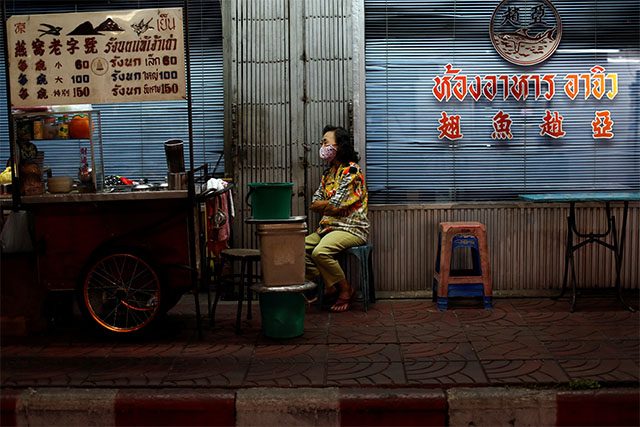
BANGKOK — Thailand has loosened restrictions on some businesses after progress in containing the coronavirus, bringing life back to the streets, including the hawker-food heaven of Bangkok’s Chinatown.
Thailand was the first country outside China to record a case of the coronavirus, back in January, but its daily tally of new cases has fallen to single digits for the past week, with a total of 2,969 confirmed infections and 54 deaths, as of Sunday.
The government has welcomed the progress with a relaxation of some lockdown rules, allowing food stalls and restaurants outside shopping malls to reopen, and allowing shops to sell alcohol for drinking at home.
“My stall has been closed for 40 days, because no one’s been here. I’ve lost 70% of my income,” said Taweesak Tabthong the owner of a famous Chinatown shark fin restaurant, who was happy to see a queue of customers outside.
Up to Sunday, restaurants and street stalls were only allowed to sell food for takeaway or delivery.
Customers are now allowed to eat in again but are meant to observe social distancing, with tables spaced apart.
Wannika Naphon, happy to be getting out for a meal for the first time in weeks, said she was confident businesses would be careful with distancing.
“I’m sure Yaowarat will return to normal with a lot of tourists soon,” she said, referring to the street by which Bangkok’s Chinatown is known.
Under the relaxed rules, outdoor markets, small shops, parks and outdoor sports facilities, barbers and pet groomers can reopen.
But a nighttime curfew, from 10 p.m., will remain until the end of the month so it will be some time before Bangkok’s famous night life even begins to get back to normal. —Writing by Patpicha Tanakasempipat Editing by Robert Birsel









